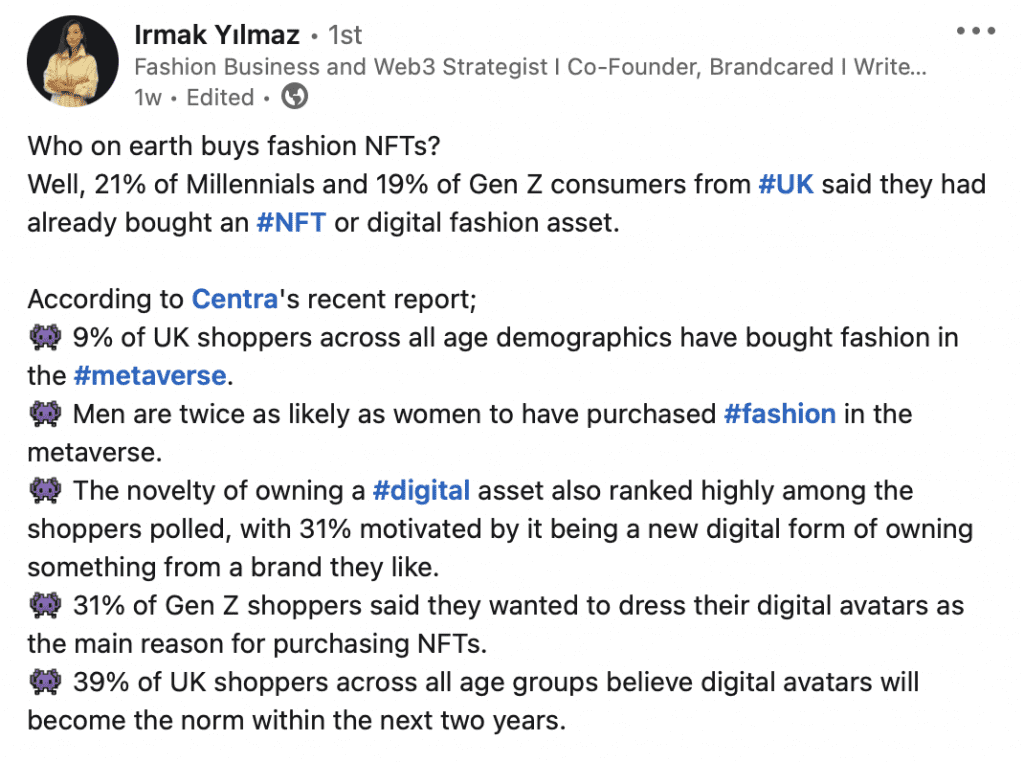Going into 2023, in addition to anticipating further consolidation in the resale space, which was valued at $32.61 billion in 2021, and is expected to grow to $51.77 billion by 2026 (more to come on this soon), loyalty-focused endeavors are likely to play a key role for brands in the secondary market and beyond. This year, we saw some notable efforts by luxury players to double-down on time-tested customer loyalty initiatives …
– Christian Dior focused on a 4-tier loyalty program in conjunction with its Beauty division that “provides exclusive benefits that rewards members’ engagement with the brand to motivate action.
– Rebag debuted its “Rebag Wallet,” “Premium Payouts,” and “Spending Bonus” features this month, which are aimed at “enhanc[ing] brand loyalty by significantly rewarding clients who remain within the Rebag ecosystem long term and reinvest their payouts.”
– These efforts follow on the heels of successful plays by the likes of LVMH-owned Sephora, for example, whose 15-year-old Beauty Insider program currently boasts more than 25 million members.
Interestingly enough, with companies looking to reframe how if/how they will use blockchain and NFT tech going forward (and probably moving away from digital asset-tied NFTs in favor of more utility-focused uses), loyalty efforts are one of the commonly cited use-cases of blockchain/NFTs …
– The loyalty landscape: A recent Oracle report revealed that 71% of U.S. consumers are active in at least 1-5 loyalty programs per month, 56% have at least 1 loyalty rewards program app on their phone, and 62% of consumers are willing to choose one brand over another because of its loyalty program.
– The problem, according to a recent case study from software development company itransition, is that loyalty programs are “plagued with inefficiencies,” which results in consumers failing to redeem their rewards.
The Bottom Line: Blockchain-based, multi-channel networks are being touted as a way to eliminate many of the inefficiencies commonly associated with loyalty program management and add new possibilities for brands and retailers to engage with customers.
Speaking of web3 >>> A recent survey from Centra reveals that 21% of Millennials and 19% of Gen Z consumers in the UK have bought an NFT or digital fashion asset. The same report reveals that 31% of Gen Z shoppers said they wanted to dress their digital avatars as the main reason for purchasing NFTs, while 39% of UK shoppers across all age groups believe digital avatars will become the norm within the next two years.

In legislation news … The INFORM Consumers Act was included in the Omnibus Appropriations bill which will fund the federal government through September 30, 2023 and was passed by Congress this week. The bill requires e-commerce platforms that allow third-party sellers – such as Amazon and eBay – to authenticate the identity of those who have made 200 or more discrete sales in a 12-month period amounting to $5,000 or more – so-called “high-volume” sellers.
As for other legislation we are watching… you can find that here.
And in some recent deal-making news … Vince Holding Corp. announced that its indirectly wholly owned subsidiary, Rebecca Taylor, Inc., completed the sale of its intellectual property and certain related ancillary assets to RT IPCO, LLC, an affiliate of Ramani Group.
– In case you missed it … Fashion startup Virgio raised $37 million in a new funding round, which it will use to build “a global fashion brand” from the South Asian market. Prosus Ventures, Alpha Wave, and Accel co-led Virgio’s Series A funding, valuing the 1-year-old co. at $161 million (post-money).